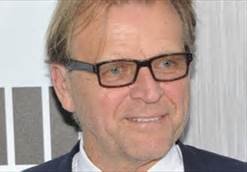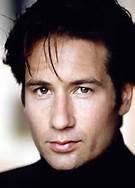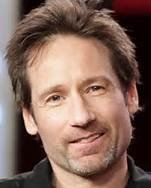
Portland (/ˈpɔːrtlənd/ PORT-lənd) is a port city in the Pacific Northwest and the most populous city in the U.S. state of Oregon. Situated in the northwestern area of the state at the confluence of the Willamette and Columbia rivers, Portland is the county seat of Multnomah County, the most populous county in Oregon. As of 2020, Portland had a population of 652,503, making it the 26th-most populated city in the United States, the sixth-most populous on the West Coast, and the second-most populous in the Pacific Northwest, after Seattle. Approximately 2.5 million people live in the Portland–Vancouver–Hillsboro, OR–WA metropolitan statistical area, making it the 25th most populous in the United States. About half of Oregon's population resides within the Portland metropolitan area.
Named after Portland, Maine, which is itself named after the English Isle of Portland, the Oregon settlement began to be populated in the 1840s, near the end of the Oregon Trail. Its water access provided convenient transportation of goods, and the timber industry was a major force in the city's early economy. At the turn of the 20th century, the city had a reputation as one of the most dangerous port cities in the world, a hub for organized crime and racketeering. After the city's economy experienced an industrial boom during World War II, its hard-edged reputation began to dissipate. Beginning in the 1960s, Portland became noted for its growing liberal and progressive political values, earning it a reputation as a bastion of counterculture.
The city operates with a commission-based government, guided by a mayor and four commissioners, as well as Metro, the only directly elected metropolitan planning organization in the United States. Its climate is marked by warm, dry summers and cool, rainy winters. This climate is ideal for growing roses, and Portland has been called the "City of Roses" for over a century.
During the prehistoric period, the land that would become Portland was flooded after the collapse of glacial dams from Lake Missoula, in what would later become Montana. These massive floods occurred during the last ice age and filled the Willamette Valley with 300 to 400 feet (91 to 122 m) of water.
Before American settlers began arriving in the 1800s, the land was inhabited for many centuries by two bands of indigenous Chinook people – the Multnomah and the Clackamas. The Chinook people occupying the land were first documented in 1805 by Meriwether Lewis and William Clark. Before its European settlement, the Portland Basin of the lower Columbia River and Willamette River valleys had been one of the most densely populated regions on the Pacific Coast.
Large numbers of pioneer settlers began arriving in the Willamette Valley in the 1840s via the Oregon Trail, with many arriving in nearby Oregon City. A new settlement then emerged ten miles from the mouth of the Willamette River, roughly halfway between Oregon City and Hudson’s Bay Company’s Fort Vancouver. This community was initially referred to as "Stumptown" and "The Clearing" because of the many trees cut down to allow for its growth. In 1843 William Overton saw potential in the new settlement but lacked the funds to file an official land claim. For 25 cents, Overton agreed to share half of the 640-acre (2.6 km2) site with Asa Lovejoy of Boston.
The city of Portland is governed by the Portland City Council, which includes a mayor, four commissioners, and an auditor. Each is elected citywide to serve a four-year term. Each commissioner oversees one or more bureaus responsible for the day-to-day operation of the city. The mayor serves as chairman of the council and is principally responsible for allocating department assignments to his fellow commissioners. The auditor provides checks and balances in the commission form of government and accountability for the use of public resources. In addition, the auditor provides access to information and reports on various matters of city government. Portland is the only large city left in the United States with the commission form of government.
A 2019 survey by the city's budget office showed that homelessness is perceived as the top challenge facing Portland, and was cited as a reason people move and do not participate in park programs. Calls to 911 concerning "unwanted persons" have significantly increased between 2013 and 2018, and the police are increasingly dealing with homeless and mentally ill. It is taking a toll on sense of safety among visitors and residents and business owners are adversely impacted. Even though homeless services and shelter beds have increased, as of 2020 homelessness is considered an intractable problem in Portland.
The proposed budget for 2022–23 includes $5.8MM to buy land for affordable housing, and $36MM to equip and operate "safe rest villages". A 2022 initiative approved by the Portland city council makes homeless camping illegal, eventually requiring homeless individuals to move into mass shelters.
Food carts are extremely popular within the city, with over 600 licensed carts. The city is home to Stumptown Coffee Roasters as well as dozens of other micro-roasteries and cafes.
Portland has 58 active breweries within city limits, and 70+ within the surrounding metro area. and data compiled by the Brewers Association ranks Portland seventh in the United States as of 2018.
Portland hosts a number of festivals throughout the year that celebrate beer and brewing, including the Oregon Brewers Festival, held in Tom McCall Waterfront Park. Held each summer during the last full weekend of July, it is the largest outdoor craft beer festival in North America, with over 70,000 attendees in 2008. Other major beer festivals throughout the calendar year include the Spring Beer and Wine Festival in April, the North American Organic Brewers Festival in June, the Portland International Beerfest in July, and the Holiday Ale Festival in December.
Simple and satisfying, our Unforgettable Chicken Casserole has that cozy-comfort taste and texture that will make for a memorable meal. Using readily available ingredients, in just 30 minutes oven time, you'll have a chicken casserole recipe that'll stick in everyone's mind!
This delicious creamy chicken casserole recipe is a favorite for several reasons. First of all, it tastes amazing! With plenty of cheese and rich ingredients like mayo and sour cream, this casserole recipe is indulgent in all the best ways. Second, it's a perfect recipe to feed a hungry family. It makes plenty of servings, and leftovers taste great (if there are any). This is one of those meals that will make leftover night something that everyone actually looks forward to!
Enjoy this cheesy chicken casserole with your family this week. You'll be happy you did!
- 3 cups chopped cooked chicken
- 2 cups finely chopped celery
- 1 cup (4 ounces) shredded Cheddar cheese
- 1 cup sour cream
- 1 cup mayonnaise
- 1 (4-ounce) can water chestnuts, drained and chopped
- 1 (10-3/4-ounce) can cream of chicken soup
- 1/2 cup slivered almonds
- 1 (6-ounce) can French-fried onion rings
- Preheat oven to 350º. Coat a 9- x 13-inch baking dish with cooking spray.
- In a large bowl, stir together chicken, celery, cheese, sour cream, mayonnaise, water chestnuts, soup, and almonds. Spoon into prepared baking dish.
- Bake, uncovered, for 30 minutes. Sprinkle onion rings evenly over top and bake 5 more minutes, or until bubbly around edges. Let stand 5 to 10 minutes before serving.
1944 – Robert Mueller, American soldier and lawyer, 6th Director of the Federal Bureau of Investigation
Purple Heart Firsts
- William Brown and Elijah Churchill received the Badge of Military Merit during the Revolutionary War when the award first replaced the Fidelity Medallion.
- Army General Douglas MacArthur received the first modern-day Purple Heart.
- Army Lt. Annie G. Fox received the Purple Heart during World War II for her actions during the attack on Pearl Harbor.
HOW TO OBSERVE
- Read For Military Merit: Recipients of the Purple Heart by Fred L. Borch or Purple Heart by Patricia McCormick.
- Watch a documentary like Purple Heart Warriors: Tears of a Warrior by Tony Seahorn.
- Visit a military museum like the National Purple Heart Hall of Honor or The National WWII Museum.















No comments:
Post a Comment